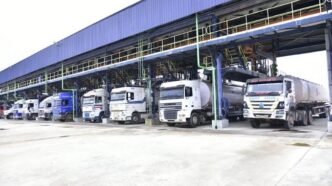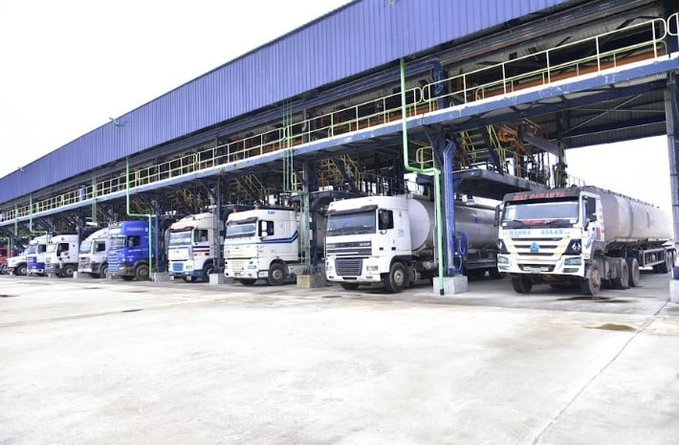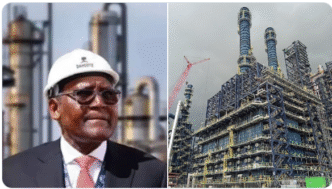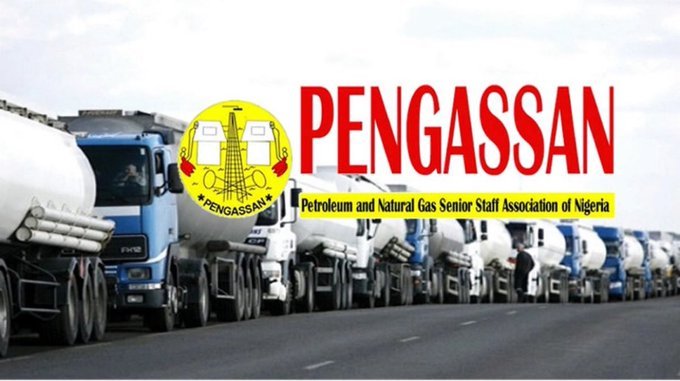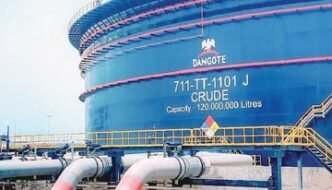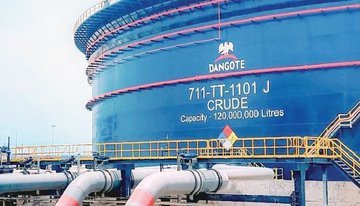The Petroleum and Natural Gas Senior Staff Association of Nigeria (PENGASSAN) has issued a stern warning to the management of the Dangote Petroleum Refinery and Petrochemicals Limited, threatening to picket the multi-billion-dollar facility over the alleged sack of 800 workers who recently joined the union.
The labour union, which is one of the most influential in Nigeria’s oil and gas industry, accused the management of the refinery of engaging in unfair labour practices and deliberately targeting employees for dismissal simply because they exercised their constitutional right to join a trade union.
The development has triggered fresh debates about the rights of workers in the private sector, the role of unions in industrial relations, and the potential impact of labour unrest on Africa’s largest refinery.
The Allegation of Mass Sack
According to PENGASSAN, no fewer than 800 staff members of the Dangote refinery were relieved of their duties shortly after they registered as members of the association. The union insists that the move was retaliatory, aimed at weakening the collective bargaining power of workers and preventing them from agitating for improved welfare.
Comrade Festus Osifo, the President of PENGASSAN, said in a strongly worded statement that the association views the alleged sack as a direct attack on workers’ rights and a violation of both national and international labour laws.
“Workers have the inalienable right to freely associate and unionise without intimidation or victimisation. Any attempt to subvert this right is not only unacceptable but also unlawful,” Osifo said.
He added that PENGASSAN would not hesitate to mobilise its members across the country to shut down the Dangote refinery and other related facilities if the management fails to reinstate the affected workers and engage the union in dialogue.
Dangote Refinery Under Spotlight
The Dangote Refinery, located in the Lekki Free Trade Zone, Lagos, is regarded as one of Africa’s most ambitious industrial projects. Commissioned in May 2023, the $19 billion facility is designed to refine up to 650,000 barrels of crude oil per day, making it the largest single-train refinery in the world.
Since its commissioning, the refinery has been hailed as a game-changer for Nigeria’s economy, with promises to drastically reduce the country’s dependence on imported refined petroleum products, create thousands of jobs, and stabilise the downstream oil sector.
However, controversies have trailed its operations, ranging from supply chain challenges to pricing issues, and now, labour disputes. The latest allegations by PENGASSAN have brought renewed scrutiny on how the refinery is managed, particularly in its dealings with employees.
PENGASSAN’s Demands
The union has outlined a number of demands to resolve the brewing crisis. Chief among them is the immediate recall of all 800 workers allegedly sacked for joining the association.
Other demands include:
- Recognition of PENGASSAN as the official representative of senior staff in the refinery.
- An end to victimisation of union members, with assurances that workers will not be harassed or intimidated for joining or participating in union activities.
- Immediate commencement of dialogue between management and PENGASSAN to negotiate conditions of service, welfare packages, and other industrial concerns.
- Compliance with Nigerian labour laws, including those governing unionisation, workers’ rights, and dispute resolution.
The association warned that failure to meet these demands could result in nationwide solidarity actions, including the shutting down of oil facilities in both the upstream and downstream sectors.
Workers’ Rights and the Law
Nigeria’s Labour Act and Trade Union Act recognise the right of workers to form or join trade unions of their choice. Section 40 of the 1999 Constitution (as amended) also guarantees freedom of assembly and association, making it unlawful for employers to victimise workers for exercising this right.
Legal experts have pointed out that if the allegations are proven, Dangote refinery could be in violation of both domestic laws and international conventions ratified by Nigeria, including International Labour Organisation (ILO) Convention 87 on Freedom of Association and Protection of the Right to Organise.
Dr. Maryam Adediran, a labour law expert at the University of Lagos, noted that “a company of Dangote’s stature is expected to strictly adhere to global labour standards. Any action perceived as anti-union could not only trigger legal battles but also damage the company’s reputation internationally.”
Management Yet to Respond
As at the time of filing this report, the management of Dangote Petroleum Refinery had not issued an official response to the allegations. Attempts by journalists to reach the company’s spokesperson proved unsuccessful.
However, industry insiders suggest that the refinery management has often been reluctant to allow external unions operate within its facilities, preferring instead to establish internal staff associations. This approach, critics say, is part of a wider strategy by large corporations to maintain control over labour relations.
Potential Fallout for the Economy
The standoff between PENGASSAN and the Dangote refinery could have far-reaching consequences for Nigeria’s oil and gas sector. With the refinery expected to play a pivotal role in meeting local demand for petroleum products, any disruption to its operations could trigger supply shortages and price hikes.
Analysts warn that prolonged industrial action might also deter investors, erode confidence in the refinery’s capacity to deliver on its promises, and even impact Nigeria’s balance of trade if refined products are not produced as planned.
“Labour unrest at a facility of this magnitude poses systemic risks. If PENGASSAN carries out its threat to picket the refinery, it could delay production schedules, increase operating costs, and destabilise the downstream market,” said Mr. Adetokunbo Olowu, an energy analyst based in Lagos.
Labour Unions in the Oil Sector
The Nigerian oil and gas sector has historically been prone to industrial disputes. Both PENGASSAN and the Nigeria Union of Petroleum and Natural Gas Workers (NUPENG) wield significant influence and have in the past crippled operations through strikes and picketing.
For decades, these unions have fought for better pay, improved working conditions, and respect for workers’ rights. Their ability to mobilise quickly and garner nationwide solidarity makes them powerful players in the industry.
Observers believe the ongoing tension at Dangote refinery could be a test of strength between the company and organised labour. While the refinery is privately owned, its strategic importance to the Nigerian economy means the outcome of this dispute could set precedents for labour relations in other large-scale private ventures.
Calls for Government Intervention
Amid growing concerns, there are calls for the Federal Government to intervene and broker peace between the refinery and the union. The Ministry of Labour and Employment, led by Simon Lalong, has the statutory responsibility to mediate in industrial disputes before they escalate.
Labour activists argue that government intervention is necessary not only to protect workers’ rights but also to safeguard national economic interests. With the refinery expected to significantly reduce Nigeria’s foreign exchange expenditure on imported fuel, any disruption to its operations could undermine economic reforms.
The Road Ahead
As tension builds, both sides appear to be bracing for confrontation. PENGASSAN has made it clear that it is prepared for a showdown, while the silence from Dangote refinery’s management leaves room for speculation about its next move.
Industry watchers say dialogue remains the only viable solution. “The refinery and PENGASSAN must come to the table to resolve their differences amicably. A strike or picketing would serve neither the workers nor the company, and certainly not the Nigerian economy,” Olowu added.
For now, the fate of the 800 sacked workers remains uncertain. But one thing is clear: the dispute has thrust labour rights back into national conversation, testing the balance between corporate power and workers’ freedoms in Nigeria’s evolving industrial landscape.
Conclusion
The threat by PENGASSAN to picket the Dangote refinery underscores the fragile nature of labour relations in Nigeria’s oil and gas sector. At stake are not just the jobs of 800 workers, but also the future of Africa’s largest refinery and the broader economic hopes tied to it.
Whether the issue escalates into a full-blown crisis or is resolved through negotiation will depend largely on how swiftly management and government authorities respond to the union’s demands. For millions of Nigerians looking to the refinery as a symbol of economic transformation, the coming weeks will be decisive.

